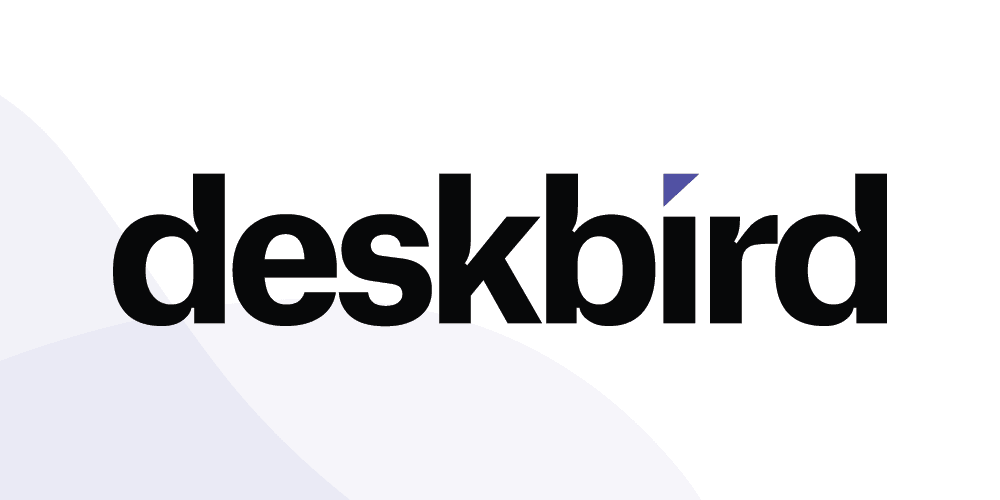Hybrid Work and Modern Workplace Glossary for HR

The evolving work landscape has brought forth a lexicon that’s continually expanding, reflecting the dynamism of modern work environments. As the paradigm shifts towards hybrid work models and novel workplace structures, HR professionals must navigate this linguistic evolution.
We have prepared a short Hybrid Work and Modern Workplace Glossary dedicated to human resources to help them maneuver through this constantly changing linguistic context.
Top Hybrid Work Terms to Know
Hybrid Working
In short, Hybrid Working is a combination of in-office and remote work.
Most people think about hybrid working in terms of an “at-home/ in-office” binomial. One of the reasons for this is that the majority of workers transitioned to hybrid mode during COVID-19-related lockdowns when they were obliged to continue their activity from home exclusively. However, while it is true that most of us still prefer to work at home if not in the office, hybrid working has developed beyond the binary of at-home or in-office work, offering a spectrum of remote possibilities (e.g. working from a coworking, workation).
Hybrid Work Model
The term “Hybrid Work Model” refers to a work style that supports both in-office and remote employees and is framed by a combination of flexible work and workplace policies and hybrid management styles.
There is no “one size fits all” hybrid work model. Every company that can implement hybrid working among all or part of their employees will have to choose a different workplace policy, WFH pace, and management depending on their business nature, job types, location, and corporate culture.
You can learn more about defining your hybrid work model here.
Work from Anywhere
As we have mentioned earlier, hybrid work does not have to be limited to working from home or in the office. Extending beyond home or office spaces, “Work from Anywhere” grants employees the liberty to work from diverse locations, fostering mobility and flexibility.
Hybrid Management
Hybrid Management is a methodology that integrates aspects of remote work and office-based operations, offering a cohesive approach to team management in hybrid environments.
No need to say that managing a geographically dispersed team presents new challenges. The fundamental aspects of successful hybrid management encompass prioritizing flexibility, having tailored resources and tools for hybrid work, establishing clear work standards, consistently evaluating team performance, and nurturing human connections.
Hybrid Work Policy
Hybrid Work Policy is the term used to describe the articulated guidelines and strategies that delineate how a company implements and manages its hybrid work arrangements. It often includes information on such topics as:
- how often are employees allowed to work remotely;
- are there obligatory days to be present in the office;
- do employees receive work-from-home allocations;
- how are remote days approved;
- what are the flexible workplace rules?
Top Workplace Terms
Flexible Workplace or Flexible Seating
Flexible Workplace, otherwise called Flexible Seating, is an office space set-up that is devoid of assigned seating, enabling employees to freely reserve and utilize workspaces as per their requirements.
Combined with Hybrid Working, a Flexible Workplace allows companies to reduce their office space as the same workplaces are occupied by multiple employees at different times or days.
Flexible Seating is also an umbrella term for such popular workplace models as Hot Desking, Desk Hoteling, and others.
Hot Desking VS Desk Hoteling
Hot Desking and Desk Hoteling both fall under flexible seating methodologies. While hot desking operates on a “first come, first served” basis, desk hoteling necessitates prior desk reservations via various desk booking software.
Desk Booking Software
Desk Booking Software refers to a digital platform or application that enables employees to reserve or schedule specific desks or workspaces (meeting rooms, individual booths, etc.) within an office environment. It simplifies the management of flexible seating arrangements by allowing users to book desks in advance based on their preferences, availability, or requirements.
Smart Office
A Smart Office is an innovative workplace that leverages technology to enhance the experience of both employees and visitors. The goal is to optimize office spaces by integrating automated systems, thereby fostering intelligence and efficiency.
Smart Office incorporates various modules such as hot desking and seating management, energy and resource optimization systems, unified communications, room and workplace occupancy sensors, cashless technology, security control systems, and collaborative environments.
Other HR Terms to Keep in Mind
Smart Working
Smart Working is a holistic approach to work that leverages technology, flexibility, and collaboration to enhance productivity and work-life balance.
It employs innovative tools and digital platforms to streamline communication and task management, fostering an agile work environment. Emphasizing flexibility, it allows individuals to structure their workday around personal preferences, boosting efficiency and satisfaction. By encouraging collaboration, it cultivates a culture of teamwork, facilitating knowledge sharing and innovation.
Digital Nomad
Digital Nomad uses technology to work remotely, typically relying on a combination of mobile devices and internet connectivity to perform their job from various locations around the world.
Digital nomads are not bound to a fixed office space, allowing them the freedom to travel and work from different places while maintaining their professional commitments.
Collective Intelligence
Collective intelligence is a shared knowledge that emerges from group collaboration, collective efforts, and interactions between individuals and leads to concurrent decisions. It’s a cornerstone of effective teamwork, enabling unified decisions founded on shared information and collective expertise.
Encouraging open access to information among collaborators enhances productivity, innovation, and trust. Embracing a global perspective fosters self-organization, flexibility, and efficiency without being limited by geographical or spatial boundaries, allowing for better teamwork and results.
Workation
Workation, a blend of “work” and “vacation,” enables employees to enjoy a vacation spot during breaks, evenings, and weekends without needing to take days off or disrupt work.
Its primary benefit lies in achieving a healthier work-life balance, allowing for genuine disconnection at day’s end and more quality time with loved ones. Additionally, it enhances team morale, prevents burnout, reduces sick leaves, and decreases turnover rates.
Freedom-Form Company
“Freedom-form” or “liberated” company is a workplace philosophy that grants employees autonomy and accountability, empowering them to make decisions that align with company objectives.
This working model entails a sophisticated yet achievable work structure that highlights individual talent and initiative, letting employees become ambassadors of the company’s vision. It demands accountability from the team and effective communication from leadership. And although this work model rarely exists in real life, it does inspire.
The Ever-Expanding Workplace Glossary
The ever-expanding glossary of terms in the realm of hybrid work and modern workplaces underscores the transformative nature of work culture. As these concepts evolve, HR professionals must embrace and adapt to these changes by fostering work environments prioritizing flexibility, collaboration, and employee well-being.



